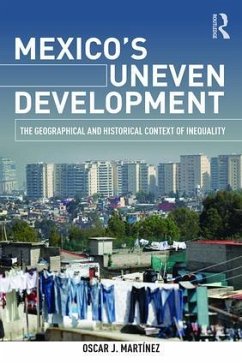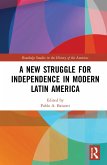Mexico and the United States may be neighbors, but their economies offer stark contrasts. In Mexico's Uneven Development: The Geographical and Historical Context of Inequality, Oscar J. Martínez explores Mexico's history to explain why Mexico remains less developed than the United States. Weaving in stories from his own experiences growing up along the U.S.-Mexico border, Martínez shows how the foundational factors of external relations, the natural environment, the structures of production and governance, natural resources, and population dynamics have all played roles in shaping the Mexican economy. This interesting and thought-provoking study clearly and convincingly explains the issues that affect Mexico's underdevelopment. It will prove invaluable to anyone studying Mexico's past or interested in its future.








